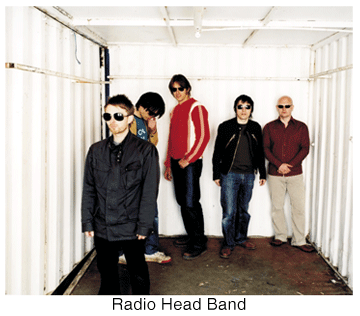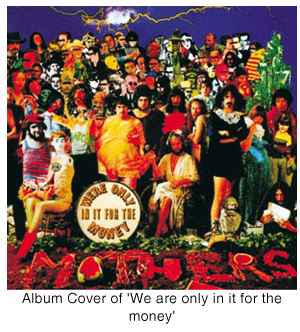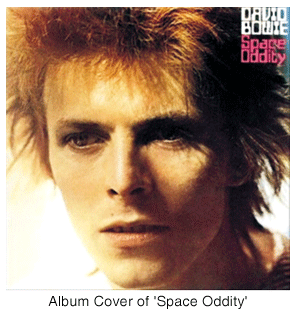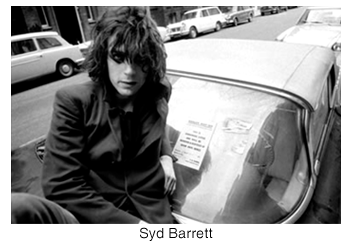- Prelude
- Editorial
- ...Where ever I stumble, let painting lie before me....
- ...Colour guides in its own direction...
- Abstract Art: Popular Myths and History
- Abstract Rhetoric:
- Ram Kumar: A transition from figurative to abstract
- I walk the line
- Exploring a twilight zone
- Articulating the Abstract voice from Madhya Pradesh
- Perception of Abstract in forms
- Confronting Cultures: The Dialectic of Abstraction in Bengal Art
- K.C.S. Paniker and his Words and Symbols
- Dialectics of Abstract Art and Its Indigenous Identity
- Between Ambivalence and Criticism: Why Abstraction?
- Notations and Rhythm in Space: Sushen Ghosh
- Victorian Era: Eclectic Furniture
- Patek Philippe : an overview
- The “Theme Pandals” of Durga Pujo: An Unexplored Discourse
- Musings on Music
- Butterflies in the stomach… still
- Contemporary Art Market Report 2009-10
- Artist Index and Statistics
- Auction Reports
- Recent works of Pavan kumar D. - In the Journey of Learning things
- Narrating “with a pinch of salt” Paintings of K.P.Reji
- Reclaiming an artist of true calibre
- Musings from Chennai
- An Annual Homage..
- Art Events Kolkata: September-October 2010
- Mumbai Art Sighting
- Art Bengaluru
- Unveiling the next in line
- Preview
- In the News
- Sotheby’s : Important Watches Hong Kong
ART news & views
Musings on Music
Volume: 3 Issue No: 10 Month: 11 Year: 2010
 Music is essentially a performance oriented art form. Over the past seventy years, however, this broadly gained another dimension. Yet it is still about getting on stage and performing.
Music is essentially a performance oriented art form. Over the past seventy years, however, this broadly gained another dimension. Yet it is still about getting on stage and performing.
The stage is not important, but the performance and audience is. The artist is an entertainer.
Different forms of music obviously have to be approached from different perspectives. Folk music, however, has a completely different purpose to serve. If we look closely at the country music of America, Bhatiali and Baul of India, the Scottish and Irish tunes which we are more familiar with, then we will realise that the 'audience' in the sense we understand it is absent. But is it so? No audience which is generally understood to be host of people attending a performance becomes just a small group of listeners. It becomes more personal than public. The advent of blues can be traced back to the black slaves of the cotton fields. For them they sang this music to keep themselves going through the grinding toil day after day. The lyrics talked about their misery and also kindled their hopes. So again, though the audience, the public, is absent it is very much present as the personal. But can one take away the performance bit out of it? Whether it is the solitary reaper humming her tune or the slaves singing about their blues or the boatman singing bhatiali it is all about performance.
However as every aspect of human life has changed over the past sixty to seventy years, so has music. Not music at its core. But like everything has gained a new dimension, so has music. The world wars, the cold war, democracy, dictatorship everything human today is more technologically advanced. So we can today record music. Just try to imagine what Miyan Tansen sounded like in Akbar's court or what Amadeus Wolfgang played picking up his violin at the tender age of four. But alas, that is only left to imagination. So as the world of recorded music came into vogue, people stretched the limits of musical experimentations as much as they could. What we get as a result of this is a performance inside a studio which is recorded for all to hear as many times as they like.  Artists over the years have used the recording studio differently. We have heard some ground-breaking stuff and some absolute disasters, though both are subject to interpretation, comprehension and individual likes and dislikes.
Artists over the years have used the recording studio differently. We have heard some ground-breaking stuff and some absolute disasters, though both are subject to interpretation, comprehension and individual likes and dislikes.
The four artists I will like to focus on here are Frank Zappa, Syd Barrett, David Bowie, Radiohead who using this new dimension have created music that will be loved by some and hated by some. But, whatever be the personal responses, those really are awesome performances cannot be ignored. We're Only in It For the Money is an experimental rock album by The Mothers of Invention. It bridges a variety of styles and genres. The album peaked at number thirty on the Billboard 200. The album satirises many aspects of the culture rife in the 1960s, lampooning the hippies, the establishment, and everything in between. In 1967, Zappa conceived an album, Our Man in Nirvana, which combined the music of his band The Mothers of Invention with comedy routines by Lenny Bruce (who had performed with Zappa at The Fillmore in 1966). However, when Sgt. Pepper's Lonely Hearts Club Band was released and hugely touted as the first concept album, Zappa, who already had released two (which Paul McCartney later stated had influenced Sgt. Pepper) felt compelled to respond. Also, Zappa noticed its cultural effect, and felt that the then-popular flower power scene would continue to have a major influence on popular culture. Consequently, he decided to produce instead a satirical album that parodied every cynical aspect of the fad, Sgt. Pepper, and the US society of the 1960s. Even Cal Schenkel's design was intended as a parody of the cover for The Beatles' Sgt. Pepper's Lonely Hearts Club Band.
The Piper at the Gates of Dawn is the debut album by the English rock band Pink Floyd, and the only one made under the founding member Syd Barrett's leadership. The album contains whimsical lyrics about space, scarecrows, gnomes, bicycles and fairy tales, along with psychedelic instrumental songs. Syd Barrett was soon to be replaced by David Gilmore due to issues related to drug abuse. But the sound and approach set by Syd Barrett in terms of sound, arrangement, guitar tones,  keyboard usage, can still be stirring to a careful listener.
keyboard usage, can still be stirring to a careful listener.
David Bowie in 1969 released Space Oddity. It has a mix of folk, balladry and prog rock. NME editors Roy Carr and Charles Shaar Murray have said, "Some of it belonged in '67 and some of it in '72, but in 1969 it all seemed vastly incongruous. Basically, David Bowie can be viewed in retrospect as all that Bowie had been and a little of what he would become, all jumbled up and fighting for control..." Still considered one of Bowie's best-known songs, "Space Oddity" was a largely acoustic number augmented by the eerie tones of the composer's Stylophone, a pocket electronic organ. The title and subject matter were inspired by Stanley Kubrick's 2001: A Space Odyssey and introduced the character of Major Tom. Some commentators have also seen the song as a metaphor for heroin use, citing the opening countdown as analogous to the drug's passage down the needle prior to the euphoric 'hit', and noting Bowie's admission of a "silly flirtation with smack" in 1968. His 1980 hit "Ashes to Ashes" declared "We know Major Tom's a junkie". "Unwashed and Somewhat Slightly Dazed" reflected a strong Bob Dylan influence, with its harmonica, edgy guitar sound and snarling vocal. "Letter to Hermione" was a farewell ballad to Bowie's former girlfriend, Hermione Farthingale, who was also the object of "An Occasional Dream", a gentle folk tune reminiscent of the singer's 1967 debut album. "God Knows I'm Good", Bowie's observational tale of a shoplifter's plight, also recalled his earlier style. "Wild Eyed Boy from Freecloud" is influenced by Buddhism while "Cygnet Committee" has been regarded as Bowie's first true masterpiece.
In August 1996, Radiohead resumed recording, outside a traditional music studio, settling instead at a 15th century mansion, St. Catherine's Court, near Bath. The recording sessions were relaxed, with the band playing at all hours of the day, recording songs in different rooms, and listening to The Beatles, DJ Shadow, Ennio Morricone and Miles Davis for inspiration.
 Radiohead contributed "Talk Show Host", as well as a newly-recorded song called "Exit Music (For a Film)", to Baz Luhrmann's adaptation of Romeo + Juliet late in the year. Most of the rest of the album was complete by the end of 1996, and by March 1997, and consequently, the record was mixed and mastered. Radiohead released their third album, OK Computer, in June 1997. Largely composed of melodious rock songs, the new record also found the band experimenting with song structures and incorporating some ambient, avant garde and electronic influences. The album's lyrics took a more observational, less personal tone than The Bends, expressing what one magazine called "end-of-the-millennium blues". OK Computer met with great critical acclaim, and Yorke admitted that he was "amazed it got the reaction it did. None of us fucking knew any more whether it was good or bad. What really blew my head off was the fact that people got all the things, all the textures and the sounds and the atmospheres we were trying to create." They went even more experimental with a complete change of sound in their fourth album Kid A.
Radiohead contributed "Talk Show Host", as well as a newly-recorded song called "Exit Music (For a Film)", to Baz Luhrmann's adaptation of Romeo + Juliet late in the year. Most of the rest of the album was complete by the end of 1996, and by March 1997, and consequently, the record was mixed and mastered. Radiohead released their third album, OK Computer, in June 1997. Largely composed of melodious rock songs, the new record also found the band experimenting with song structures and incorporating some ambient, avant garde and electronic influences. The album's lyrics took a more observational, less personal tone than The Bends, expressing what one magazine called "end-of-the-millennium blues". OK Computer met with great critical acclaim, and Yorke admitted that he was "amazed it got the reaction it did. None of us fucking knew any more whether it was good or bad. What really blew my head off was the fact that people got all the things, all the textures and the sounds and the atmospheres we were trying to create." They went even more experimental with a complete change of sound in their fourth album Kid A.
So yes, the stage has changed; it has become an abstract space enclosed by walls called studio.
The public audience has become more of a personal listener, but the performance and the artist still call the shots.